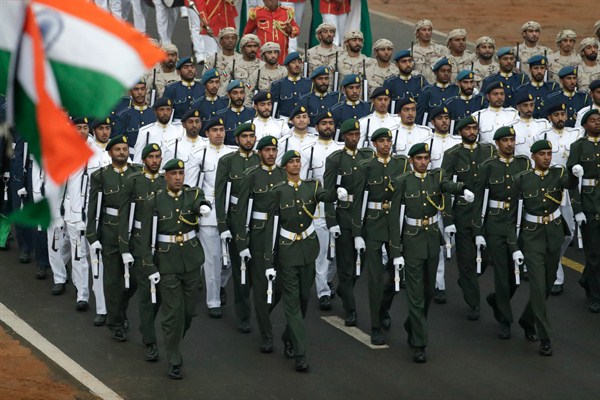When five diplomats from the United Arab Emirates were killed in a bombing in Kandahar earlier this month, Afghan authorities quickly blamed the Haqqani network, which many suspect of having ties to Pakistani intelligence. That triggered speculation that the attack—the first on diplomats from a Gulf state in Afghanistan—was meant to send a message to the UAE about its growing counterterrorism cooperation with India.
The timing of the blast was seen as especially significant since it came just weeks before Abu Dhabi’s powerful crown prince, Sheikh Mohammed Bin Zayed Al Nahyan, who is also the deputy supreme commander of the UAE’s armed forces, attended India’s Republic Day celebrations as a guest of honor on Jan. 26—a symbolic gesture reserved for India’s closest partners. In fact, the crown prince was the first non-head of state to be made a guest of honor for India’s Republic Day parade. During his three-day visit to India, he signed more than a dozen agreements with Indian Prime Minister Narendra Modi that covered everything from energy, including a deal for strategic oil reserves, to investment ties and defense cooperation.
The visit marked the official upgrade of relations between India and the UAE to the level of a “comprehensive strategic partnership,” building on a significant trade relationship that both sides want to further strengthen. Though heightened India-UAE ties certainly have a logic of their own, given a shared concern for stability to support convergent geo-economic interests, it remains to be seen how much the UAE will tilt toward India in its relations with South Asia—or whether it will compartmentalize its security ties with India and Pakistan.

